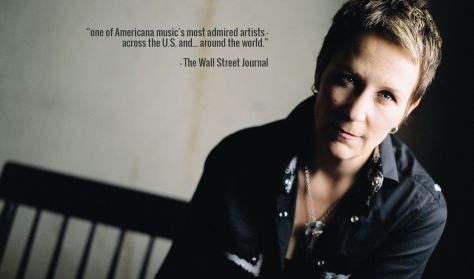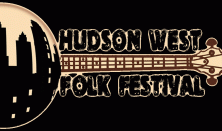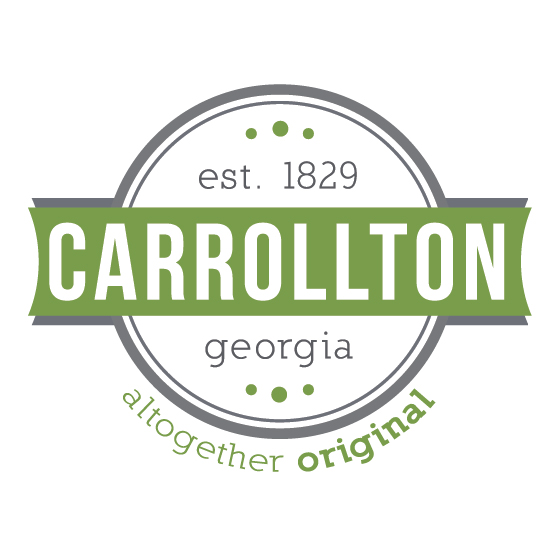Artist

Mary Gauthier
Every day.
Every single day, which means some days are better and some much worse.
Every day, on average, twenty-two veterans commit suicide.
Every day.
That number does not include drug overdoses or car wrecks or any…
Current programs
No program is currently running.
Every day.
Every single day, which means some days are better and some much worse.
Every day, on average, twenty-two veterans commit suicide.
Every day.
That number does not include drug overdoses or car wrecks or any of the more inventive ways somebody might less obviously choose to die.
It seems trivial to suggest those lives might be saved — healed, even — by a song. By the process of writing a song.
And yet.
And yet there is nothing trivial about Mary Gauthier's tenth album, Rifles & Rosary Beads (Thirty Tigers), all eleven songs co-written with and for wounded veterans. Eleven of the nearly four hundred songs that highly accomplished songwriters have co-written as part of the five-year-old SongwritingWith:Soldiers program.
Participants of the program have shared that the experience of songwriting was life changing for them, some even said life saving. Something about writing that song — telling that story — is healing. What program co-founder Smith calls post-traumatic-growth.
Gauthier's first nine albums presented extraordinary confessional songs, deeply personal, profoundly emotional pieces ranging from “I Drink,” a blunt accounting of addiction, to “March 11, 1962,” the day she was born — and relinquished to an orphanage — to “Worthy,” in which the singer finally understands she is deserving of love. Maybe that's where the confessional song cycle ends, for she has midwifed these eleven new songs in careful collaboration with other souls whose struggle is urgent, immediate, and palpable. And none are about her.
Each song on Rifles & Rosary Beads is a gut punch: deceptively simple and emotionally complex. From the opening “Soldiering On” (“What saves you in the battle/Can kill you at home”) to “Bullet Holes in the Sky” (“They thank me for my service/And wave their little flags/They genuflect on Sundays/And yes, they'd send us back”), while “Iraq” depicts the helpless horror of a female military mechanic being dehumanized and sexually harassed by fellow soldiers.
Darrell Scott, returning from one of Smith's first retreats, called and told Mary she needed to participate. “I felt unqualified,” she says. “I didn't know anything about the military, I was terrified of fucking it up. I didn't feel I knew how to be in the presence of that much trauma without being afraid. But Darrell knew I could do it. Turns out, I was able to sit with the veterans with a sense of calmness and help them articulate their suffering without fear. I was shocked by that. And I took to it.”
It has become a calling. “My job as a songwriter is to find that thing a soul needs to say,” Mary says. “Each retreat brings together a dozen or so soldiers and four songwriters, three songs each in two days. We don't have a choice. We have to stay focused, listen carefully, and make sure every veteran gets their own song. And we always do.”
“None of the veterans are artists. They don't write songs, they don't know that songs can be used to move trauma. Their understanding of song doesn't include that. For me it's been the whole damn deal. Songwriting saved me. It's what I think the best songs do, help articulate the ineffable, make the invisible visible, creating resonance, so that people, (including the songwriter) don’t feel alone.”
The impact of these songs becomes visible quickly, unexpectedly.
Featured in the TV series “Nashville,” the Bluebird Cafe now prospers as a tourist destination. The room fills twice a night with people thrilled to be in the presence of real live Nashville songwriters.
Who, in turn, are thrilled to be in the presence of a paying audience that can do nothing to advance their careers, save give a genuine response to their songs.
The gentleman at the next table has handsome white hair and a hundred-dollar casual shirt, and almost certainly had no idea who Mary Gauthier was, nor what her songs might be about, when he came out of the sunlight into the darkened listening room. He knows, now. Thick, manicured fingers cover his face, trying to catch his slow tears. His wife sits close, watches carefully, but knows better than to touch him.
He is not alone in that small audience.
Every day we are touched by the veterans in our lives, whether we know it or not.
Every single day.
Even if it's only the guy on Main Street, in the wheelchair, with the flag.
Every single day.
And, yes, a song may be the answer.
“Because the results are so dramatic, this could work for other traumas,” Mary says. “Trauma is the epidemic. You say opioid, I say trauma epidemic. As an addict, I know addiction is self-medication because of suffering, and beneath that pain is always trauma. Underneath so much of the problems in the world is trauma, it's the central issue humanity is dealing with. We've found something powerful here, that brings hope to people who are hurting. So they are truly seen, and know they are not alone.”
Career Highlights
AWARDS
(2019) Rifles & Rosary Beads Named Best Album of The Year at International Folk Music Awards
(2019) Rifles & Rosary Beads Nominated for GRAMMY Award for Best Folk Album of the Year
(2019) Mary Gauthier Named International Artist of the Year by The Americana Association UK
(2018) Rifles & Rosary Beads, Nominated for Album of the Year by The Americana Music Association
(2018) Rifles & Rosary Beads Named #1 Best Singer/Songwriter Album of 2018 by LA Times
(2018) “War After The War” Named #1 Song of the Year by NPR/Malcolm Gladwell
(2015) Mary Gauthier Nominated for GLADD Outstanding Music Artist of the Year at 26th Annual GLAAD Media Awards
(2014) Trouble and Love Named One of Best 40 Country Albums of 2014 by Rolling Stone Magazine
(2014) "Mercy Now” Named One of Saddest 40 Country Songs of All Time by Rolling Stone Magazine
(2010) The Foundling named No. 3 Record of the Year by LA Times
(2005) First Major Label Release, Mercy Now, on Top 10 List for 2005 in New York Times, LA Times, The Daily News and Billboard Magazine
(2005) Mary Gauthier Named “New Artist of the Year” by The Americana Music Association
(2005) Mercy Now voted the No. 6 Record of the Decade by No Depression Magazine
(2002) Filth and Fire named “#1 Independent Record of The Year” by Jon Pareles of The New York Times
(1998) Mary Gauthier Named Best Country Artist of the Year (GLAMA)
(1998) Mary Gauthier Nominated for 3 Gay and Lesbian American Music Awards (GLAMA)
(1998) Mary Gauthier Won 1st Annual Independent Music Awards for Folk/Singer-Songwriter Song for Drag Queens in Limousines
(1998) Mary Gauthier Nominated for Best New Artist of the Year, Boston Music Awards
SONGS RECORDED BY OTHER ARTISTS
(2019) "Worthy," - Sarah Potenza
(2018) "Mercy Now," - Kathy Mattea
(2017) "I Drink," - Bobby Bare
(2017) “Mercy Now,” - Bobby Bare
(2016) “I Drink,” - Tim McGraw
(2015) “Worthy,” - Bettye LaVette, Title Track – GRAMMY-Nominated, Best Blues Album
(2015) "Gentling Me,” - Amy Helm
(2014) “Mercy Now,” – Mike Farris – GRAMMY-Award Winning Album for Best Roots Gospel Album
(2013) “How You Learn to Live Alone,” – ABC’s Nashville, performed by Jonathan Jackson (Gauthier/Peters)
(2009) “Mercy Now,” - Candi Staton
(2006) “Wheel Inside The Wheel,” - Jimmy Buffett
(2004) “I Drink,” - Blake Shelton
(2003) “I Drink,” - Bill Chambers

Hudson West Folk Festival
MyBoxOffice.US Events- Performer/Singer
Recommendations
Warning! The basket time limit is about to expire!
item(s) in basket
total:
Time limit has expired. Please, put item(s) in to basket again.


